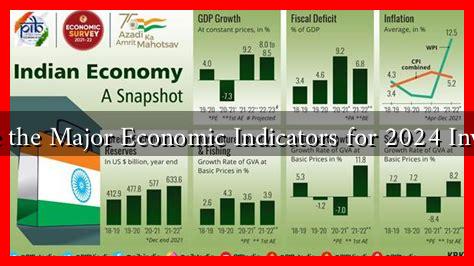-
Table of Contents
What Are the Major Economic Indicators for 2024 Investments?
As we approach 2024, investors are keenly analyzing various economic indicators to make informed decisions. Understanding these indicators can provide insights into market trends, potential risks, and opportunities for growth. This article delves into the major economic indicators that will shape investment strategies in 2024.
Understanding Economic Indicators
Economic indicators are statistical metrics that provide insights into the overall health of an economy. They can be classified into three categories: leading, lagging, and coincident indicators. Leading indicators predict future economic activity, lagging indicators confirm trends, and coincident indicators reflect the current state of the economy.
Key Economic Indicators for 2024
Several key economic indicators will be crucial for investors in 2024. Here are the most significant ones to watch:
- Gross Domestic Product (GDP): GDP measures the total economic output of a country. A growing GDP indicates a healthy economy, while a declining GDP can signal recession. In 2024, analysts expect moderate GDP growth, influenced by factors such as consumer spending and government policies.
- Unemployment Rate: The unemployment rate reflects the percentage of the labor force that is unemployed but actively seeking employment. A low unemployment rate typically indicates a strong economy, while a high rate can suggest economic distress. In 2024, the unemployment rate is projected to stabilize around 4%, which is considered healthy.
- Inflation Rate: Inflation measures the rate at which the general level of prices for goods and services rises, eroding purchasing power. The Consumer Price Index (CPI) is a common measure of inflation. In 2024, inflation is expected to moderate, potentially falling within the Federal Reserve’s target range of 2% to 3%.
- Interest Rates: Interest rates, set by central banks, influence borrowing costs and consumer spending. In 2024, the Federal Reserve is anticipated to maintain a cautious approach to interest rate adjustments, which could impact investment strategies significantly.
- Consumer Confidence Index (CCI): The CCI measures how optimistic or pessimistic consumers are regarding their expected financial situation. A high CCI indicates strong consumer spending, which is vital for economic growth. In 2024, consumer confidence is expected to remain stable, supporting retail and service sectors.
- Stock Market Performance: The performance of stock markets can serve as a barometer for economic health. Investors should monitor indices like the S&P 500 and Dow Jones Industrial Average for trends that may indicate broader economic conditions.
Case Studies and Examples
To illustrate the impact of these indicators, consider the following case studies:
- The 2008 Financial Crisis: During the financial crisis, GDP contracted, unemployment soared, and consumer confidence plummeted. Investors who closely monitored these indicators were able to adjust their portfolios to mitigate losses.
- The COVID-19 Pandemic: The pandemic caused unprecedented fluctuations in economic indicators. For instance, the unemployment rate spiked to historic levels, while inflation rates fluctuated dramatically. Investors who adapted quickly to these changes were better positioned for recovery.
Statistics to Watch
As we look ahead to 2024, several statistics will be critical for investors:
- Projected GDP growth of approximately 2.5%.
- Unemployment rate stabilizing around 4%.
- Inflation rate expected to hover between 2% and 3%.
- Consumer confidence index projected to remain above 100, indicating optimism.
Conclusion
In summary, understanding the major economic indicators for 2024 is essential for making informed investment decisions. By closely monitoring GDP, unemployment rates, inflation, interest rates, consumer confidence, and stock market performance, investors can better navigate the complexities of the economic landscape. As we move into 2024, staying informed and adaptable will be key to capitalizing on opportunities and mitigating risks in the investment arena.
For further insights on economic indicators and investment strategies, consider visiting Investopedia.

